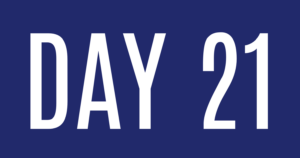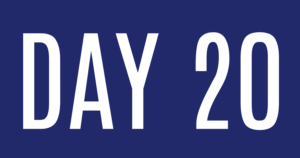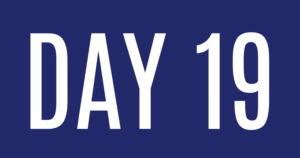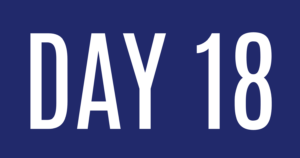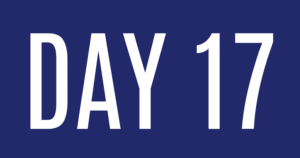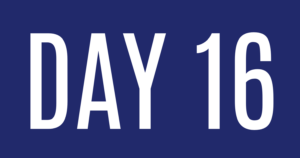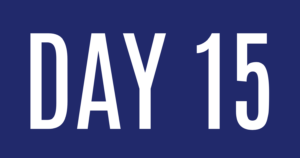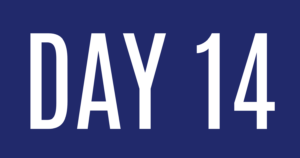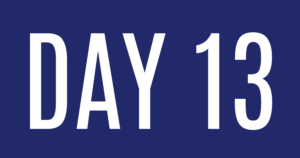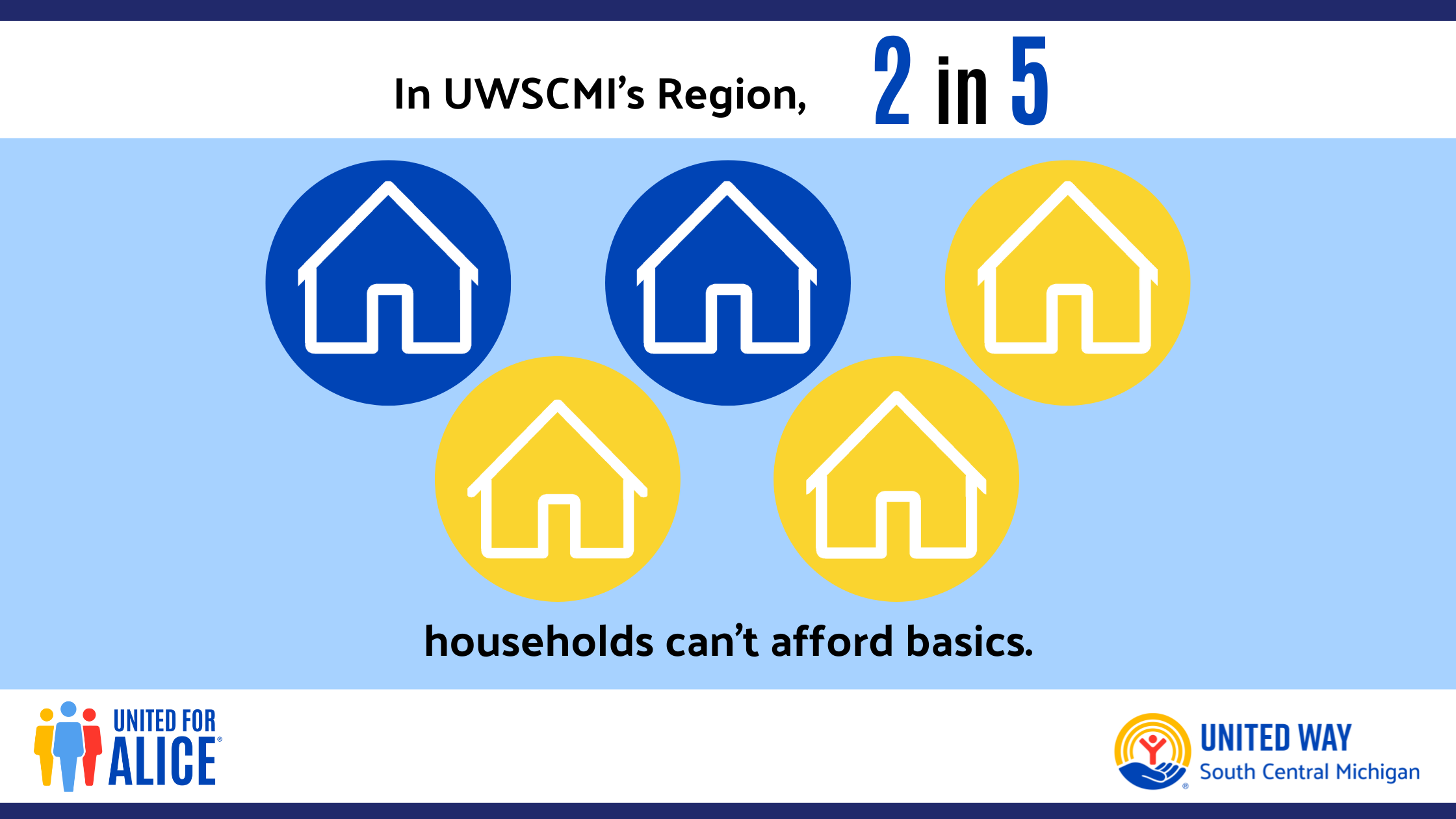
The Michigan Association of United Ways (MAUW) today released the latest data on the state’s ALICE population—Asset-Limited, Income-Constrained and Employed individuals who struggle to meet their financial needs. The report, which covers 2023 data, found 14% of Michigan households fall below the Federal Poverty Level, while another 27% of households live above poverty but don’t earn enough to be financially secure—a measure known as the ALICE threshold.
The full report is available here: unitedforalice.org/introducing-ALICE/Michigan.
Chris Sargent, President and Executive Officer of United Way of South Central Michigan (UWSCMI), made the following statement reflecting on the ALICE data for UWSCMI’s six-county region (Calhoun, Clinton, Eaton, Ingham, Jackson, Kalamazoo):
For more than a century, our United Way has worked with partners of every kind to tackle the toughest social issues our communities face. While times change and issues evolve, we know that financial instability has always been the common thread. What that means—and what this report makes crystal clear—is that ALICE is still struggling.
In our six-county region:
- 41% of households fall below the ALICE threshold. That’s 171,521 households, of which 14% are in poverty and 27% are barely able to make ends meet.
- Nearly three-quarters (74%) of single-female-led households with children live below the ALICE threshold.
- 72% of age-25-and-under households can’t reach the ALICE threshold, while 49% of age-65-and-above households live below that measure.
- 61% of Black households and 46% of Hispanic, American Indian/Alaskan Native, and multiracial households live below the ALICE threshold, compared to 38% of White households.
- Some of the larger cities in our region saw higher ALICE rates than the regional average, including Jackson (64%), Kalamazoo (53%), Battle Creek (51%) and Lansing (50%).
Our region includes urban and rural areas, and ALICE lives in all of them. ALICE workers are typically our childcare providers, home health aides, delivery drivers, grocery store cashiers, and other critical workers we depend on every day. They’re the engine that powers our economy. ALICE can be a family member, a friend, a neighbor, a co-worker.
Each day brings a new, impossible choice for ALICE families trying to make ends meet. Pay the heating bill, or buy healthy food for the family? Pay for childcare, or work reduced hours to stay home with a child? Fix the car to get to work, or skip medication this month?
Making things even harder is the fact that ALICE is often locked out of public assistance. Despite ALICE living paycheck to paycheck, in many cases ALICE workers earn too much to qualify for support.
What’s the answer? Unfortunately, there isn’t a one-size-fits-all solution. The path forward must be a collective one—a shared commitment across every sector of our society to give ALICE families a fair shot at thriving. That means supportive public policies, better-paying jobs, and grassroots programs that target the barriers to ALICE’s success.
UWSCMI leads, partners on and invests in many programs that help ALICE:
- United for ALICE@Work, a project developed in partnership with United Way of Northern New Jersey to help employers better understand and support ALICE workers.
- JobSTAR, an employee resource network in Jackson that provides Success Coaches to local workplaces, connecting ALICE workers with crucial resources.
- Program Assistance Center, which helps ALICE households statewide catch up on past-due energy bills.
- 2-1-1, a one-stop shop where callers can be connected to services and support based on their specific needs.
- Local and regional partnerships and investments addressing essential needs, including food insecurity, safe and affordable housing, and other needs.
Still, as the ALICE Report shows, more changes are necessary. Those changes begin with awareness that leads to action. All of us must understand and be willing to step up to give ALICE that chance—however we can, wherever we can. It takes courage, commitment and compassion. At United Way, we’re ready to do our part to build those partnerships and pathways. Because when ALICE succeeds, we all succeed.


